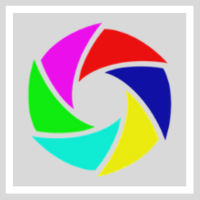WE MOVED!
New Address: 50 Main Street, Suite 1000 White Plains NY, 10606
New Address: 50 Main Street, Suite 1000 White Plains NY, 10606
-
About
SMPTE
-
 Who is SMPTE? SMPTE is the global society of media professionals, technologists and engineers working together to drive the industry forward technical brilliance. creative passion.
Who is SMPTE? SMPTE is the global society of media professionals, technologists and engineers working together to drive the industry forward technical brilliance. creative passion. -
 Meet SMPTE Staff! Our team drives SMPTE’s mission, supporting standards, education, and events to advance media and entertainment technology worldwide.
Meet SMPTE Staff! Our team drives SMPTE’s mission, supporting standards, education, and events to advance media and entertainment technology worldwide.
-
 Officers and Board of Governors SMPTE Board of DirectorsThe Board of Directors guides SMPTE’s mission and strategy, overseeing operations, financial health, and initiatives in standards, education, and industry advancement.
Officers and Board of Governors SMPTE Board of DirectorsThe Board of Directors guides SMPTE’s mission and strategy, overseeing operations, financial health, and initiatives in standards, education, and industry advancement. -
 SMPTE Presidents This page features a complete list of SMPTE presidents, spanning from our founder, C. Francis Jenkins, to our current president.
SMPTE Presidents This page features a complete list of SMPTE presidents, spanning from our founder, C. Francis Jenkins, to our current president.
-
-
Membership
Member Benefits
-
 Join SMPTE Join Now Connect with the leaders and innovations shaping media technology
Join SMPTE Join Now Connect with the leaders and innovations shaping media technology -
 Renew With SMPTE Renew Now! Renew now to stay connected and growing
Renew With SMPTE Renew Now! Renew now to stay connected and growing -
 Overview SMPTE memberships for individuals and organizations
Overview SMPTE memberships for individuals and organizations -
 Individual Membership Join as an individual to stay connected, grow your skills, and advance your career.
Individual Membership Join as an individual to stay connected, grow your skills, and advance your career.
Section Benefits -
-
Standards
I AM LOOKING FOR
-
 Standards Overview Learn more about SMPTE standards
Standards Overview Learn more about SMPTE standards -
 Standards Documents Engineering and other documents, including landing pages
Standards Documents Engineering and other documents, including landing pages -
 Recently Published Documents List of latest SMPTE publications
Recently Published Documents List of latest SMPTE publications -
 Technology Committee Meetings Online and in-person meeting schedule
Technology Committee Meetings Online and in-person meeting schedule -
 Join a Technology Committee Get involved in creating next-generation standards
Join a Technology Committee Get involved in creating next-generation standards
-
 Technology Committee Outcome Reports SMPTE Standards Community Participation
Technology Committee Outcome Reports SMPTE Standards Community Participation -
 Standards Governance Operations manual and guidelines
Standards Governance Operations manual and guidelines -
 SMPTE ST 2110 FAQ What is the SMPTE ST 2110 Suite of Standards?
SMPTE ST 2110 FAQ What is the SMPTE ST 2110 Suite of Standards? -
 Media Microservices Terminology Single-source set of terms and definitions
Media Microservices Terminology Single-source set of terms and definitions -
 IMF User Group Community for users and implementers of the Interoperable Master Format (IMF) standards
IMF User Group Community for users and implementers of the Interoperable Master Format (IMF) standards
-
-
Education
SMPTE Academy
-
 Online Virtual Courses Virtual training for media innovators
Online Virtual Courses Virtual training for media innovators -
 ST 2110 Boot Camp Fast-track your career and your organization’s move to live IP.
ST 2110 Boot Camp Fast-track your career and your organization’s move to live IP. -
 Road Show 2026 Why Attend
Road Show 2026 Why Attend -
 Road Show 2026 Sponsorship Opportunities
Road Show 2026 Sponsorship Opportunities -
 Motion Imaging Journal Your source for the latest insights, trends, and technology shaping the motion imaging industry.
Motion Imaging Journal Your source for the latest insights, trends, and technology shaping the motion imaging industry. -
 Wallcharts Wall charts are periodically published in the SMPTE Motion Imaging and contain information that may be used as reference
Wallcharts Wall charts are periodically published in the SMPTE Motion Imaging and contain information that may be used as reference
Be Part of the Journal -
- Events
- Connect With Us

 Education, Membership and Standards Directors
Education, Membership and Standards Directors
 Fellows
Fellows
 Award Programs
Award Programs
 Society Governance
Society Governance



 Section Officers and Managers
Section Officers and Managers
 Section Event Non-Member Sign-Up
Section Event Non-Member Sign-Up
 Standards Projects
Standards Projects
 Registration Authority
Registration Authority
 SMPTE GitHub
SMPTE GitHub
 Patent Statements
Patent Statements
 Advisory Notes
Advisory Notes
 Appeals
Appeals
 Work with SMPTE
Work with SMPTE
 Editorial Calendar
Editorial Calendar
 Guidelines for Submitting
Guidelines for Submitting
 Subscribe
Subscribe
 Board of Editors
Board of Editors






 Media Kit
Media Kit
 SMPTE Logos
SMPTE Logos
 Support Request
Support Request
 Get Alerts!
Get Alerts!
 SMPTE Stories
SMPTE Stories
